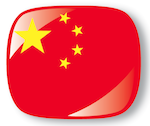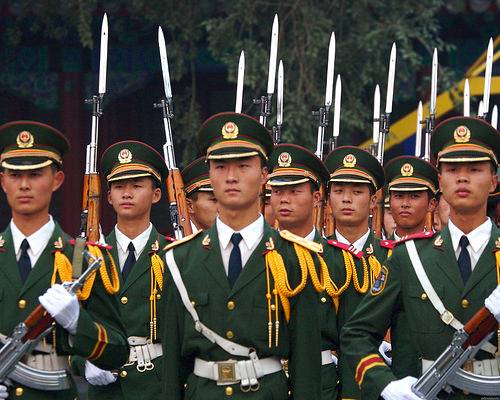While countries as disparate as Armenia and Mauritania react to the reality of change in Tunisia and Egypt, China continues its crackdown. After blocking terms like “jasmine” (for the Jasmine Uprising) and even country names like “Egypt” from online searches, it began a campaign of arrests and harassment of protesters, and possible future protesters, in its major cities.

Now, in a material indication of its priorities, China has released its budget expenditures at the start of its new parliamentary session. For the first time, the country’s spending on internal security, including online censorship program and tools, has passed the yearly budget for the army and all other defense organization.
According to Reuters, this year’s budget on domestic security, which includes “state security, armed civil militia, courts and jails” jumped 13.8 percent to $95 billion.

The budget for China’s army, on the other hand, increased only 12.7 percent to $91.5 billion.
The power of the Jasmine Uprising in the Middle East as an example to people around the world seeking change could probably not find a better indicator than this shift in priorities for a county which is widely acknowledged as the world champion in the repression of internal dissent.
As the Chinese Communist Party newspaper Beijing Daily put it:
“Everyone knows that stability is a blessing and chaos is a calamity.”
Kimberly Smith, a University of Texas, Dallas, grad student in Emerging Media Communications, thinks this priority accurately reflects the priorities of the Chinese in general. Smith spent the last year in China studying and making iPhone documentaries.
“I attended the Internet in China Conference at Peking University last year. Several Industry representatives were in attendance, and they appeared to be united in their view: respect Party rules, period. And, because The Party views social stability as a top priority (to maintain Party control), they will do what is in their power to ensure that the country continues it’s steady, positive growth.”
Are the people the final arbiters in their governments’ choices, even if the country is not designed to reflect their choices? Are the people of China really supportive of these priorities, or is it only certain groups that benefit from these decisions?
Army photo by Schmeeve

















